With the development of modern transportation, fuel tank trailer, as an important transportation tool, bear the heavy responsibility of transporting petroleum and liquid chemicals. However, due to the flammable and explosive properties of oil products, there are certain risks and safety hazards in the use of fuel tank trailer. Therefore, when using fuel tank trailer, we must strictly comply with relevant regulations and precautions to ensure safe transportation. The following are the precautions for using fuel tank trailer:
1.Drivers need to possess professional knowledge and skills
Drivers are the first line of defense for the safe transportation of fuel tank trailer, and they need to possess professional knowledge and skills, including familiarity with vehicle structure and operating procedures, mastery of emergency response methods, etc. Drivers should participate in specialized training and hold a legal driving license to drive fuel tank trailer.
2.Regular inspection and maintenance of fuel tank trailer
fuel tank trailer is a special transportation tool, with key components including tank body, pressure relief device, portable fire extinguisher, etc. Regularly inspect and maintain these components to ensure they are in good working condition and prevent leakage or malfunction.
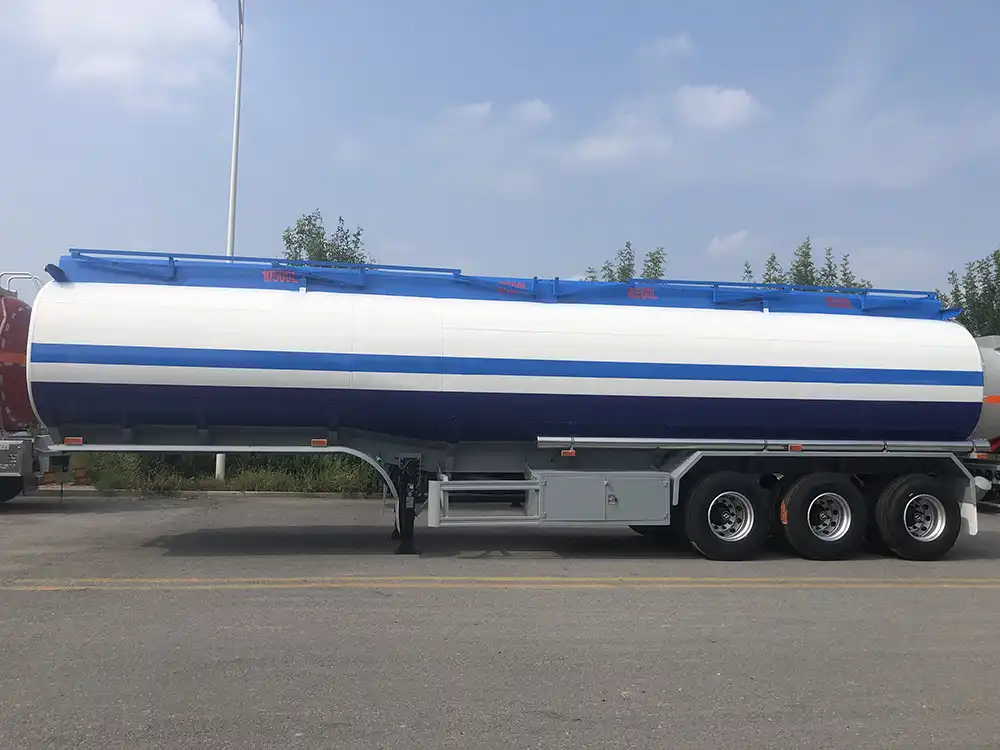
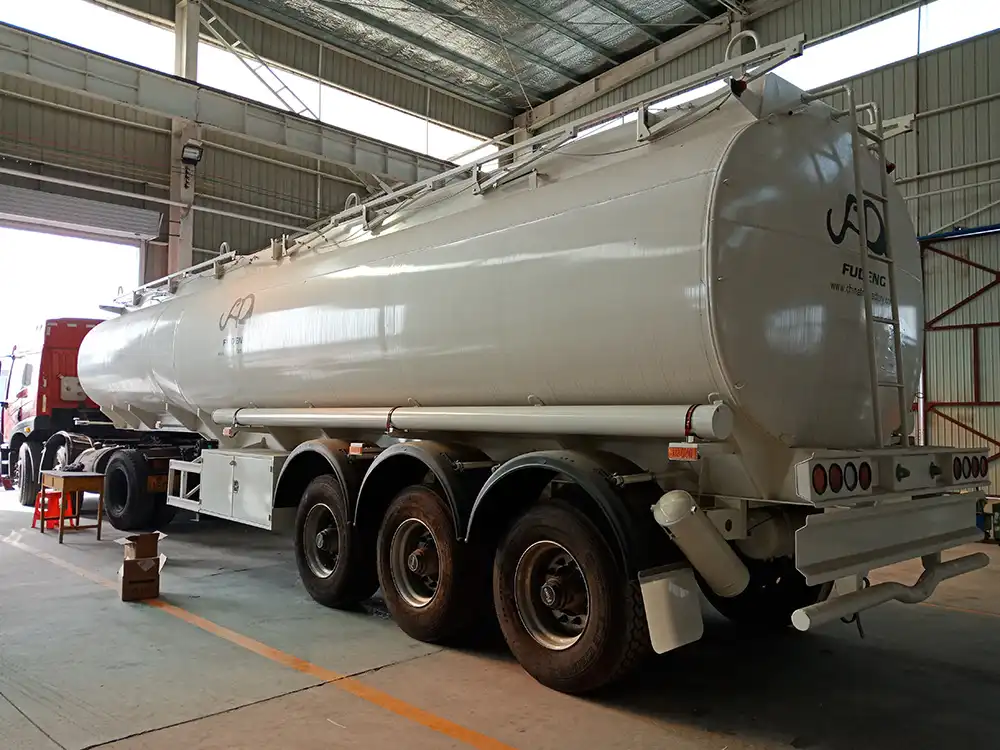
3.Be cautious in loading and unloading operations
Loading and unloading operations are one of the most dangerous processes during the transportation of fuel tank trailer. During loading and unloading, it is necessary to strictly follow the operating procedures to avoid oil splashing or dripping. At the same time, it is necessary to ensure that the equipment and site in contact with the oil have fire safety measures to prevent fire accidents from occurring.
4.Selection of gas stations
A gas station is a place where fuel tank trailer are refueled. When choosing a gas station, attention should be paid to the following points: first, choose a regular gas station to ensure the quality and safety of the oil products; Secondly, choose a suitable fuel gun and do not use damaged or aged fuel guns to prevent oil leakage.
5.Preparation of emergency measures
During transportation, we cannot completely rule out the occurrence of unexpected situations. Therefore, it is very important to take timely and effective measures to reduce accident losses. Necessary emergency equipment such as fire extinguishers and leak protection tools should be equipped on fuel tank trailer. At the same time, drivers should be familiar with emergency response procedures and conduct regular emergency drills.
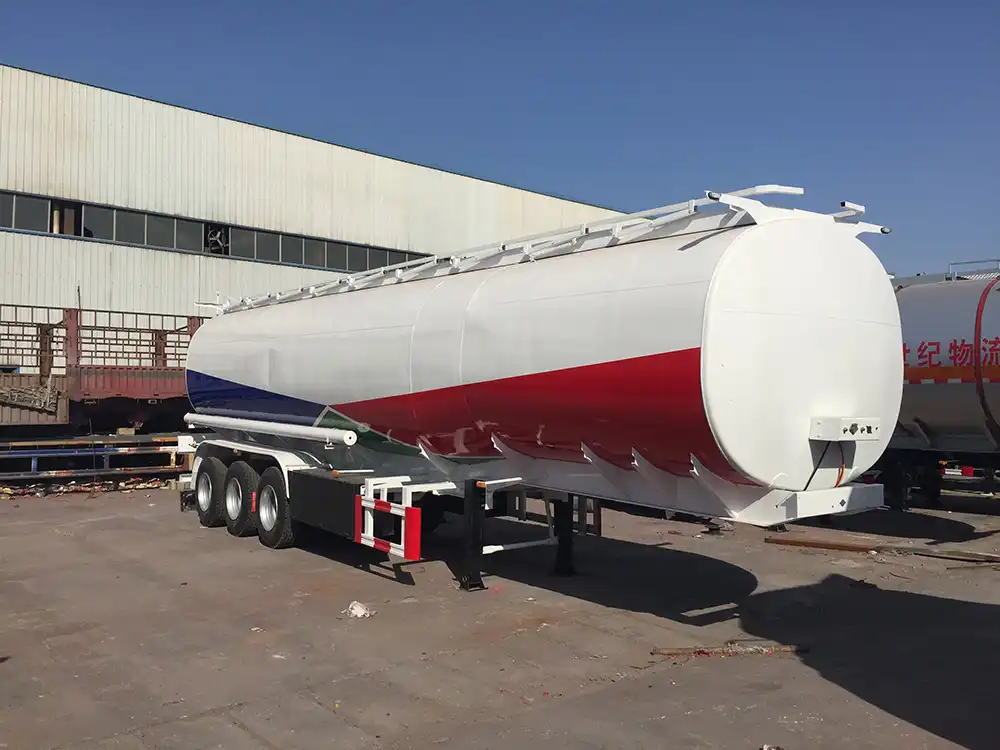
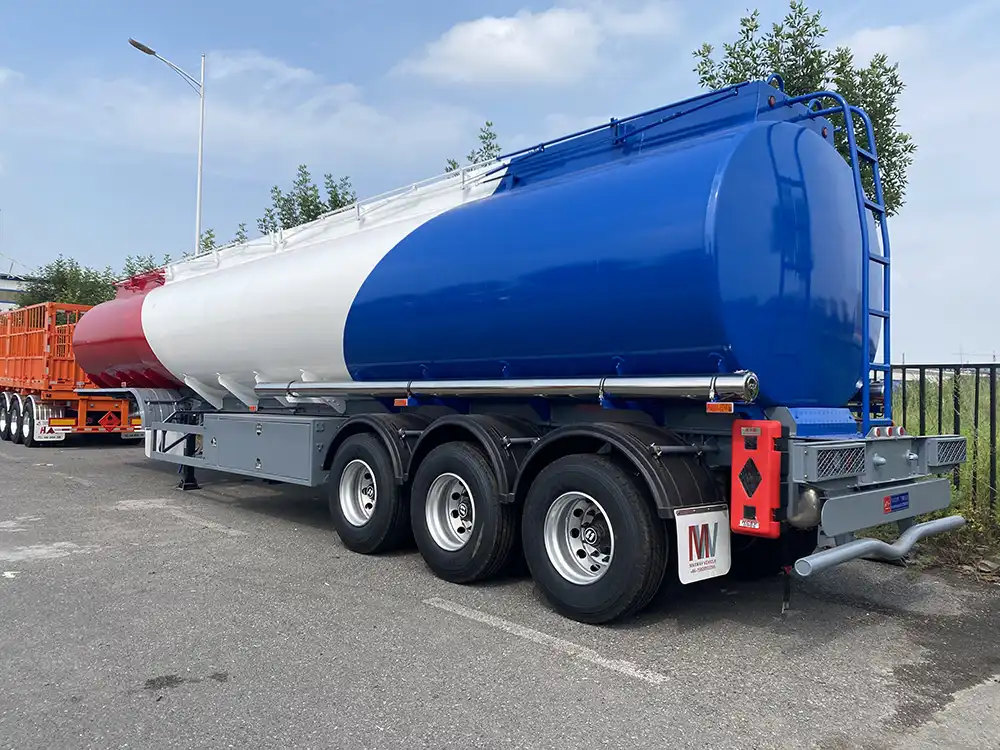
6.Comply with traffic rules and laws and regulations
During the process of driving an fuel tank trailer, drivers must strictly abide by traffic rules and laws and regulations to ensure safe driving. Do not exceed the speed limit, drive under fatigue or under the influence of alcohol, and do not violate the traffic restrictions of large vehicles to avoid safety hazards for others and oneself.
7.Maintain a safe distance from other vehicles and pedestrians
Due to the certain danger of fuel tank trailer, drivers should maintain a safe distance from other vehicles and pedestrians to avoid collisions or friction accidents with them. At the same time, safety reminders and warnings should be strengthened for other drivers and pedestrians to ensure safety during driving.
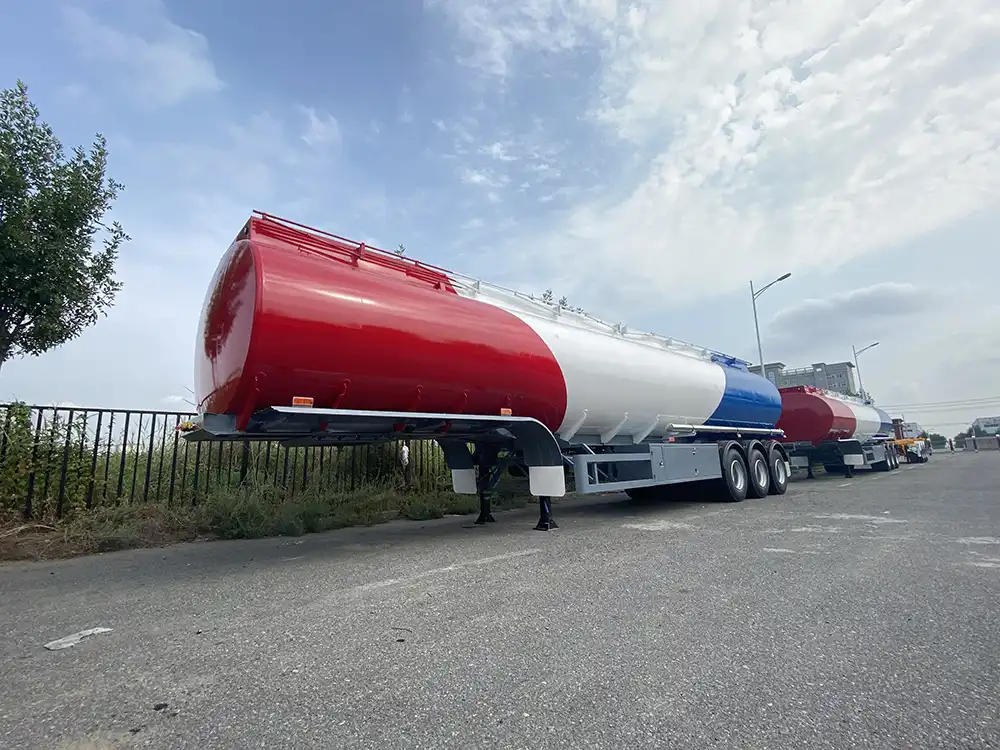
Summary:
Using fuel tank trailer for transportation is a dangerous job, so we must be extremely careful during use. The above precautions are only basic requirements, and in actual operation, specific analysis and handling should be carried out according to the specific situation. Drivers should enhance their safety awareness, strengthen technical training, familiarize themselves with operating procedures, and remain vigilant at all times to ensure the safety and smoothness of the transportation process. This can better ensure the safety and stable development of oil transportation.

